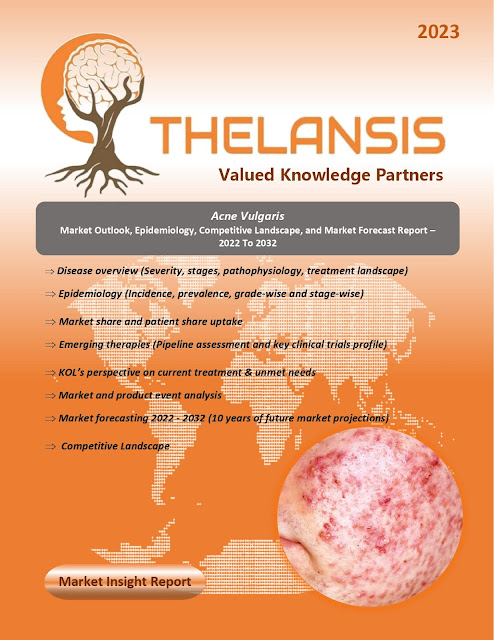Recurrent Pericarditis Market Outlook, Epidemiology, Competitive Landscape, and Market Forecast Report – 2021 To 2032
Recurrent Pericarditis is a pericardial
syndrome in which signs and symptoms of pericardial inflammation appear after
at least 4–6 weeks of the symptom-free interval following an episode of acute
pericarditis. It is caused by different factors, including infections or
autoimmunity. It is the most troublesome complication of acute pericarditis,
occurring within 18 months of the first episode of acute pericarditis in 30%
(20% to 50%) of patients. It can lead to repeated hospitalizations and
additional treatment costs. Often the etiology cannot be identified using
standard laboratory techniques and remains idiopathic in approximately 85% of
cases. Also, systemic diseases are responsible for many recurrent cases as
these are a well-known manifestation of lupus erythematosus, Sjögren syndrome,
rheumatic arthritis, scleroderma, systemic vasculitis, and a few others.
Therefore, pericarditis is seldom identified first but instead falls under the
treatment regimen of the accompanying disease.
- Recurrent Pericarditis incidence cases vary from 8.5 to 14
cases per 100,000 population in the USA.
Thelansis’s “Recurrent Pericarditis Market
Outlook, Epidemiology, Competitive
Landscape, and Market Forecast Report – 2021 To 2032" covers disease
overview, epidemiology, drug utilization, prescription share analysis,
competitive landscape, clinical practice, regulatory landscape, patient share,
market uptake, market forecast, and key market insights under the potential Recurrent
Pericarditis treatment modalities options for eight major markets (USA,
Germany, France, Italy, Spain, UK, Japan, and China).
KOLs insights
of Recurrent Pericarditis across 8 MM market from the centre of Excellence/
Public/ Private hospitals participated in the study. Insights around current
treatment landscape, epidemiology, clinical characteristics, future treatment
paradigm, and Unmet needs.
Recurrent Pericarditis Market Forecast Patient
Based Forecast Model (MS. Excel Based Automated Dashboard), which Data Inputs
with sourcing, Market Event, and Product Event, Country specific Forecast
Model, Market uptake and patient share uptake, Attribute Analysis, Analog
Analysis, Disease burden, and pricing scenario, Summary, and Insights.
Thelansis Competitive Intelligence (CI) practice
has been established based on a deep understanding of the pharma/biotech
business environment to provide an optimized support system to all levels of
the decision-making process. It enables business leaders in forward-thinking
and proactive decision-making. Thelansis supports scientific and commercial
teams in seamless CI support by creating an AI/ ML-based technology-driven
platform that manages the data flow from primary and secondary sources.




Comments
Post a Comment